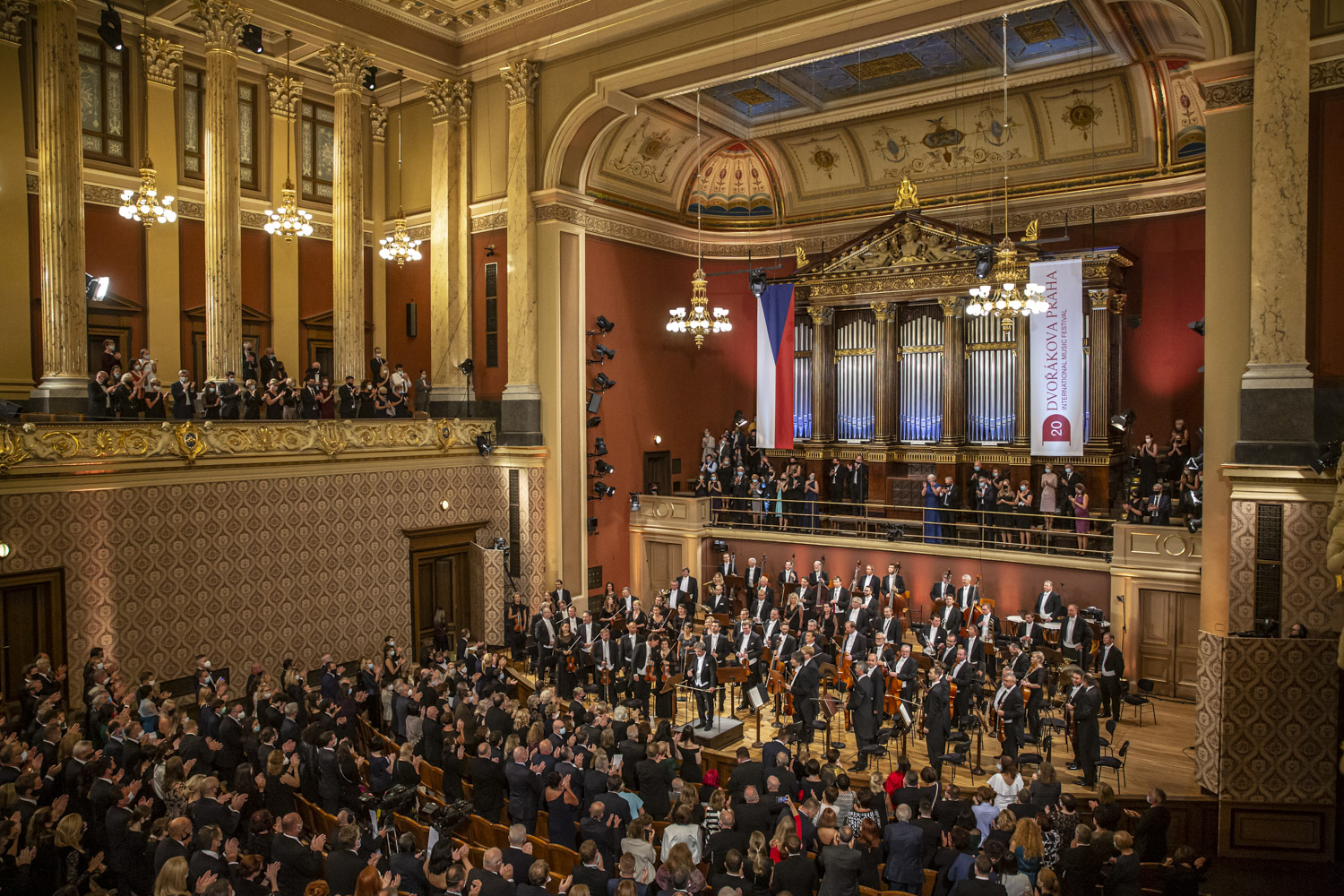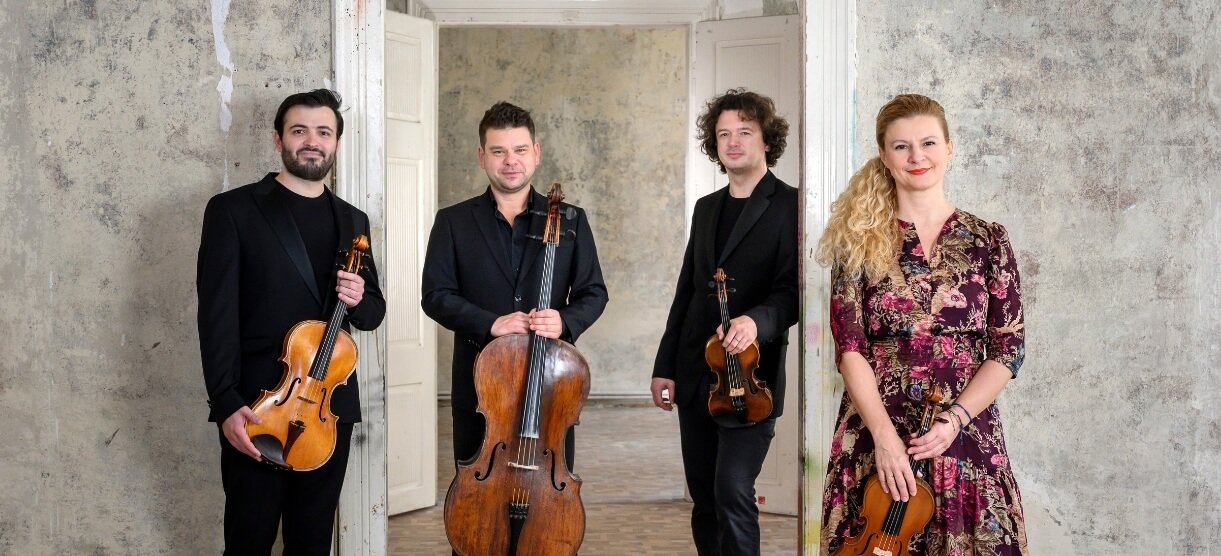
Antonín Dvořák: Cypresses, B. 152
Franz Schubert: Octet in F Major, D. 803
Opening this year’s Chamber Series will be its curators, the world-renowned Pavel Haas Quartet. Celebrating the completion of our three-year partnership, the quartet has invited preeminent colleagues to collaborate and share the stage. The programme features Dvořák's Cypresses for string quartet as well as Schubert's impressive six-movement Octet in F Major.
Songs about fiery love and great wanderings need no further words. The young Antonín Dvořák had fallen in love with actress Josefina Čermáková, and he encoded his feelings for all time in the song cycle Cypresses, a work to which he would later return several times. The composer’s arrangement for string quartet retains all of the urgency, persuasiveness, and changes of mood that the composer had poured into the original songs. Songs accompanied Franz Schubert throughout his career. From his song Der Wanderer, Schubert derived the first movement of the beautiful Octet, which is one of his greatest works of chamber music. Dvořák and Schubert share a respect for classical order combined with amazing inventiveness and emotional outbursts, and their works have not lost their power over the centuries.
The Pavel Haas Quartet stands as one of the world’s premier chamber ensembles, commanding the most prestigious concert stages globally. Its recordings have earned it five Gramophone Awards, along with a multitude of other significant accolades. In 2022, BBC Music Magazine ranked the ensemble among the top 10 greatest string quartets of all time.
The Quartet’s performances regularly grace revered venues such as Concertgebouw and Muziekgebouw in Amsterdam, NCPA in Beijing, the Philharmonie and Konzerthaus in Berlin, Queen's Hall in Edinburgh, Elbphilharmonie in Hamburg, Wigmore Hall in London, Philharmonie in Luxembourg, Carnegie Hall in New York, Théâtre de la Ville in Paris, Accademia di Santa Cecilia in Rome, LG Arts Centre in Seoul, Musikverein in Vienna, and Tonhalle in Zürich, etc.
In the 2024/2025 concert season, the Pavel Haas Quartet will once again return to illustrious Carnegie Hall and London’s Wigmore Hall. The ensemble will embark on a European tour during the first half of the season, visiting Austria, Germany, Belgium, and the United Kingdom. It will close out 2024 with a tour across the United States. Audiences in the Czech Republic can look forward to several performances at the Dvořák Prague Festival, where the Quartet has served as an artist-in-residence and curator of chamber concerts since September 2022, including a three-season exploration of Dvořák’s string quartets and chamber works.
The Pavel Haas Quartet records exclusively for Supraphon. Its most recent album, *Brahms Viola and Piano Quintets* (2022), featuring Boris Giltburg and former member Pavel Nikl, met with widespread acclaim. The Quartet’s prior release, *Shostakovich String Quartets* (2019), garnered the Recording of the Year prize at the Classic Prague Awards, and The Times hailed it as one of the 100 best recordings of the year.
The ensemble has received five Gramophone Awards for its recordings of Dvořák, Smetana, Schubert, Janáček, and Haas as well as for Dvořák’s String Quartets No. 12 “American” and No. 13, which also took the 2011 Gramophone Recording of the Year award. Additional honours include a BBC Music Magazine Award and the 2010 Diapason d’Or de l’Année for the ensemble’s recording of Prokofiev’s String Quartets No. 1 and No. 2.
A victory at the Paolo Borciani Competition in Italy in 2005 marked the first milestone of the Pavel Haas Quartet’s career. A nomination for ECHO Rising Stars in 2007 followed, along with participation in the BBC New Generation Artists program from 2007-2009, and a Borletti-Buitoni Trust Special Ensemble Scholarship in 2010.
The Pavel Haas Quartet was founded in 2002 by Veronika Jarůšková, and violist Pavel Nikl, who remained a member until 2016 and who continues to be a frequent guest performer at string quintet concerts. The ensemble’s members studied under the legendary violist Milan Škampa of the Smetana Quartet. The Quartet takes its name from the Czech composer Pavel Haas (1899–1944), Janáček’s most promising pupil, who was imprisoned by the Nazis in the Terezín ghetto in 1941 and tortured to death three years later in the Auschwitz concentration camp. His musical legacy includes three exquisite string quartets.
source: artevisio
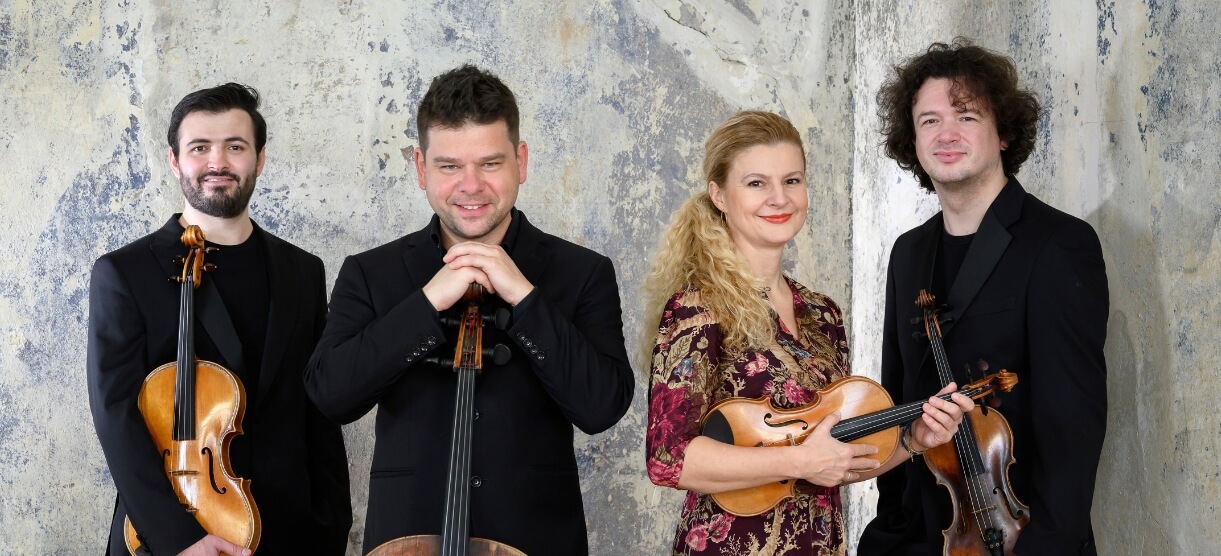
He has won awards at many prestigious international competitions (Prague Spring, Rome, Bayreuth, Ostend, Seville, and London). Karel is a member of PhilHarmonia Octet, Arundo Quartet, and the Prague State Opera Orchestra. His CD “Czech Music for Clarinet” earned him a nomination for the Anděl 2021 Award.
Active in education, he conducts courses both nationally and internationally, and he holds a teaching position at the Faculty of Arts at the University of Ostrava. His outstanding performances, which showcase his comedy, acting, and movement talents, receive great acclaim – whether he is portraying Karlheinz Stockhausen’s Harlequin or interpreting Peacock Tales in Anders Hillborg’s Concerto for Clarinet and Orchestra.
Karel Dohnal’s notable performances include concerts with the Bamber Symphony and Jakub Hrůša (Copland), the Essen Philharmonic and Tomáš Netopil (Copland, Mozart), the Györ Philharmonic Orchestra (Kubín), the Czech Radio Symphony Orchestra (Kabeláč, Štochl, Debussy), the Band of the Castle Guards and the Police of the Czech Republic (Nelhýbel), the Janáček Philharmonic Ostrava (Hillborg), the Gera Philharmonic Orchestra (Kaprálová) and the USC Symphony Orchestra (Françaix). He is an official player of the French clarinet manufacturer Selmer and the US firm D'Addario Woodwinds.
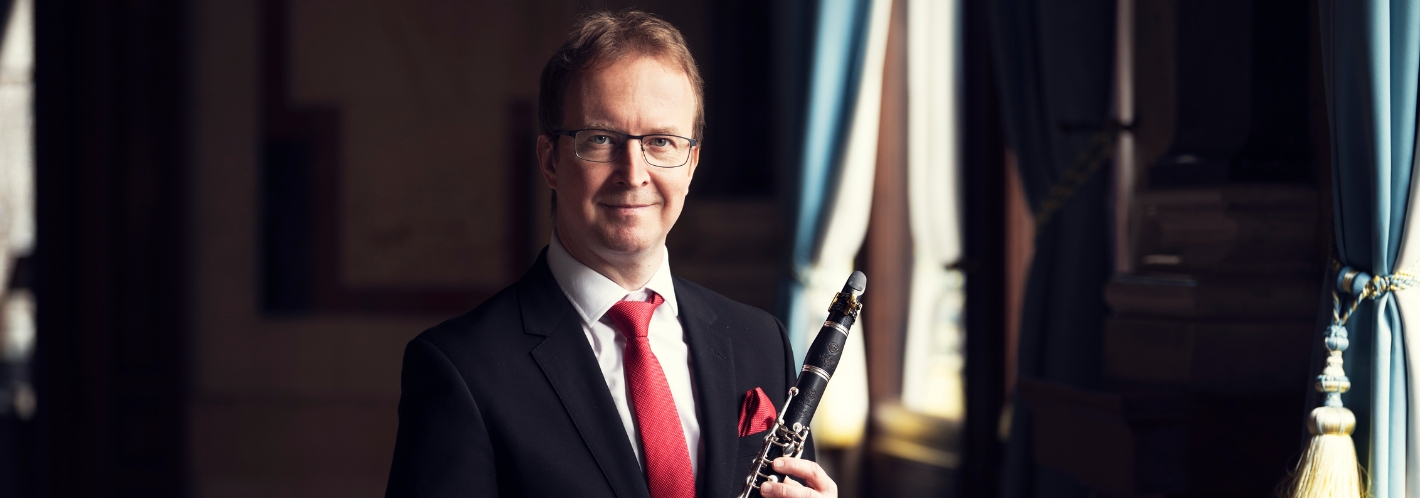
Tomáš Františ graduated from the Academy of Performing Arts in Prague under the guidance of Prof. Jiří Seidl and Prof. František Herman. Since 1993, he has held the position of solo bassoonist with the Brno Philharmonic. In 1994, he obtained the same position within the newly formed Prague Chamber Philharmonic. In 2013, he joined the Czech Philharmonic.
He has won several performance competitions (Kroměříž 1994, Chomutov 1995, Olomouc 2000) and the Prague Spring International Competition 2002.
Tomáš Františ is a sought-after interpreter of contemporary music. In the Czech Republic, he has premiered bassoon concertos by 20th century the French composers A. Jolivet (1999) and J. Francaix (2000), and the Czech contemporary composer M. Hybler (2008).
As a soloist, he frequently partners with major Czech orchestras (Czech Philharmonic, Prague Chamber Philharmonic, Brno Philharmonic, Czech Chamber Philharmonic Pardubice, Pilsen Philharmonic, Berg Orchestra, and others).
Tomáš organises public concerts of both classical and contemporary music. He is a founding member of the Prague Modern Ensemble. Additionally, he is the founder of the Czech Society of Double Reed Instruments, which is dedicated to promoting and teaching bassoon. Since 2007, he has been teaching at the Prague Conservatory and, since 2022, at the Music and Dance Faculty of the Academy of Performing Arts in Prague.
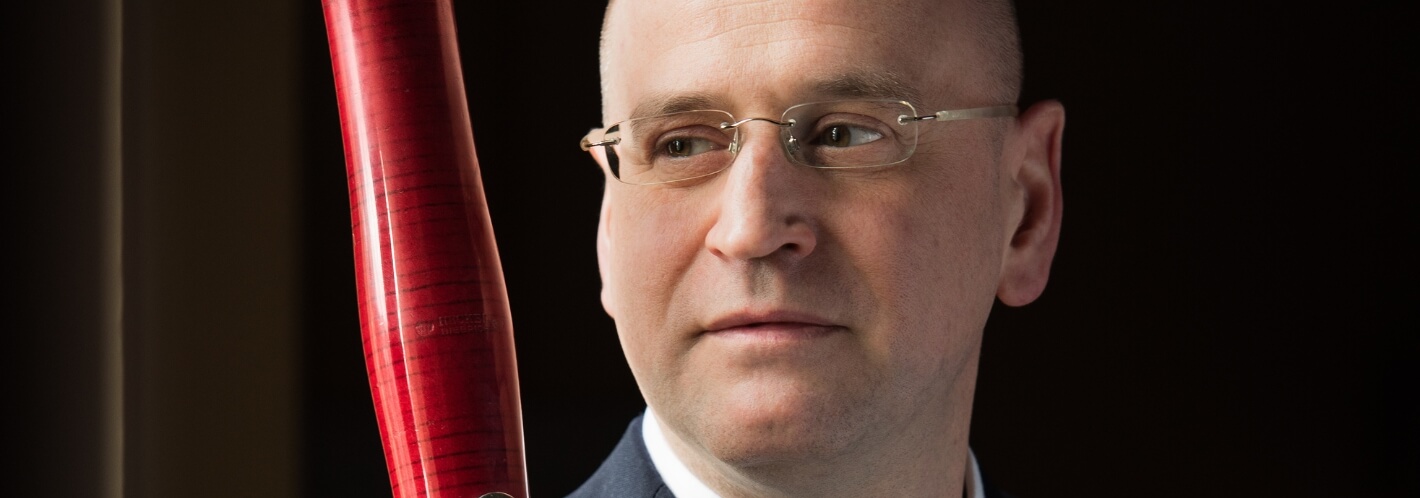
Winner of the 2010 ARD International Music Competition, Přemysl Vojta is widely acknowledged as one of today’s most intriguing and sought-after horn players. As a soloist, he has performed with orchestras such as the Bavarian Radio Symphony Orchestra, the Camerata Salzburg, the Academy of St Martin in the Fields, the Prague Chamber Philharmonic Orchestra, and the Kanagawa Symphony Orchestra. After a successful debut at Beethovenfest Bonn in 2011, he was honoured with the Beethoven Ring, a prestigious prize previously awarded to artists such as Igor Levit, Lisa Batiashvili, and Gustavo Dudamel. Přemysl Vojta has made an international impact through his engaging CD productions, which encompass a complete recording of Joseph and Michael Haydn’s horn concertos, and the album “Metamorphosis”, featuring three different types of French horns.
In 2021, he was appointed Professor of French Horn at the Folkwang University of the Arts (Folkwang Universität der Künste) in Essen, Germany, succeeding the legendary Hermann Baumann and Frank Lloyd.
Přemysl Vojta received his first horn lessons at the age of ten at the Jaroslav Kvapil Primary School of Art in Brno under the guidance of Olga Voldánová. A little later, faced with the choice between competitive swimming and music, the talented athlete opted for the arts. His studies brought him to Bedřich Tylšař at the Prague Conservatory and to Christian-Friedrich Dallmann at the Berlin University of the Arts. While still a student, he assumed the position of solo horn player at the Konzerthaus Berlin, and later also at the orchestra of the Berlin State Opera and the WDR Symphony Orchestra. As a guest principal horn player, he has collaborated with various orchestras such as the Berlin Philharmonic, the Staatskapelle Dresden, the Leipzig Gewandhaus Orchestra, the London Symphony Orchestra, and the Bavarian Radio Symphony Orchestra. Přemysl is a member of the Carousel Ensemble and the Breeze Wind Quintet.
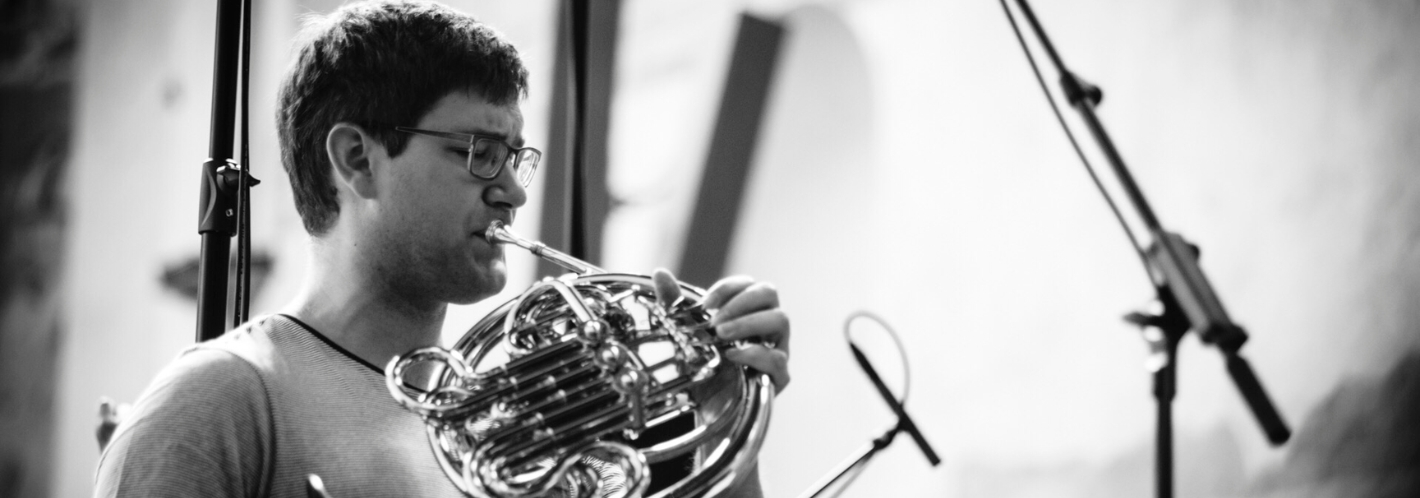
Double bassist Petr Ries graduated from the P. J. Vejvanovský Conservatory in Kroměříž. During his studies, he also focused on conducting and composition. In the 2003–2004 academic year, he completed a study stay at the Conservatoire National Supérieur de Musique et de Danse in Paris under Professor Jean-Paul Celea. He completed his education in 2005 at the Faculty of Music of the Academy of Performing Arts in Prague under Professor Jiří Hudec.
He is a laureate of numerous competitions. In 1996, he won first prize at the National Conservatory Competition; a year later, he received first prize at the F. Gregory International Double Bass Competition in Kroměříž. In 1998, he was awarded second prize at the Moravian Autumn International Performance Competition in Brno, followed by seventh prize at the International Music Competition in Markneukirchen in 1999. In 2002, he received second prize at the J. M. Sperger International Double Bass Competition in Michaelstein and became a laureate of the prestigious Talent of the Year 2002 competition in Prague, where he performed Serge Koussevitzky’s Double Bass Concerto in F sharp Minor with the Prague Radio Symphony Orchestra in a live broadcast on Czech Radio Vltava.
In 2003, he won the audition for the Prague Radio Symphony Orchestra, and a year later joined the Czech Philharmonic, where he continues to serve as deputy principal double bassist.
As a soloist and chamber musician, Petr Ries regularly performs on stages in the Czech Republic and abroad. He has collaborated with many Czech and international orchestras and is a sought-after chamber music partner. He has performed with renowned ensembles such as the Pavel Haas Quartet, Bennewitz Quartet, Zemlinsky Quartet, Škampa Quartet, Martinů Quartet, Kocián Quartet, Baborák Ensemble, Belfiato Quintet, and PhilHarmonia Octet, among others.
Currently, he is a member of the Prague Chamber Soloists and the Haydn Ensemble Prague. Since 2010, he has also been active in jazz as a member of the Czech Philharmonic Jazz Band.
He has taught at the Interpretation Courses in Litomyšl since 2003 and at the Summer Music Academy in Kroměříž. Between 2009 and 2015, he was a professor at the International Conservatory in Prague and is currently a lecturer at the Czech Philharmonic Orchestral Academy. He is frequently invited to serve on the juries of national and international competitions.
source: Petr Ries
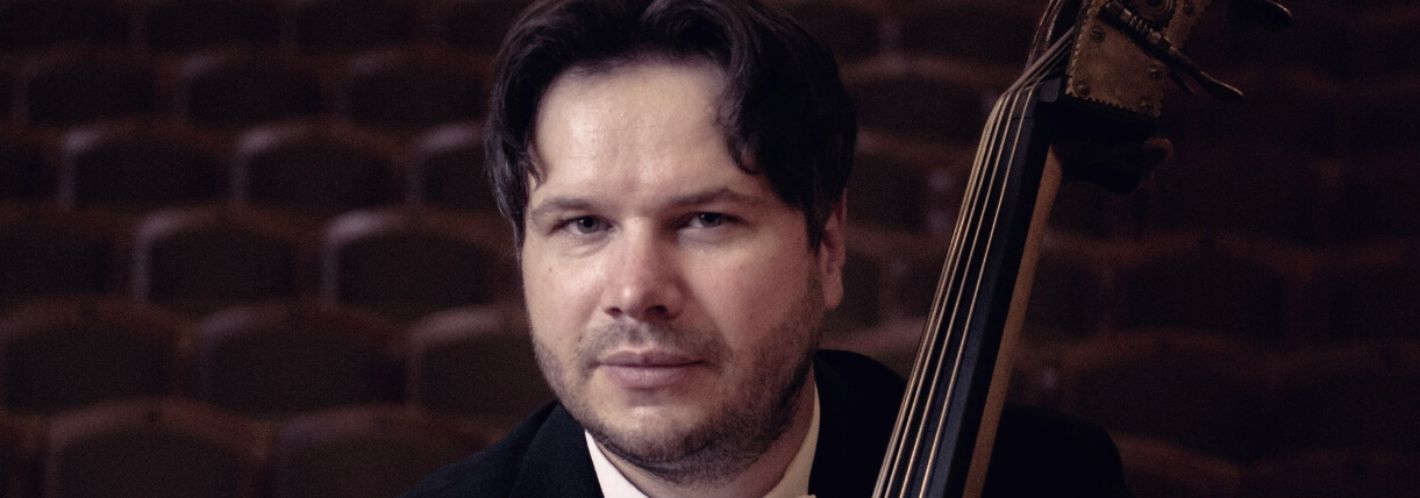
The Rudolfinum is one of the most important Neo-Renaissance edifices in the Czech Republic. In its conception as a multi-purpose cultural centre it was quite unique in Europe at the time of its construction. Based on a joint design by two outstanding Czech architects, Josef Zítek and Josef Schultz, a magnificent building was erected serving for concerts, as a gallery, and as a museum. The grand opening on 7 February 1885 was attended by Crown Prince Rudolph of Austria, in whose honour the structure was named. In 1896 the very first concert of the Czech Philharmonic Orchestra took place in the Rudolfinum's main concert hall, under the baton of the composer Antonín Dvořák whose name was later bestowed on the hall.
